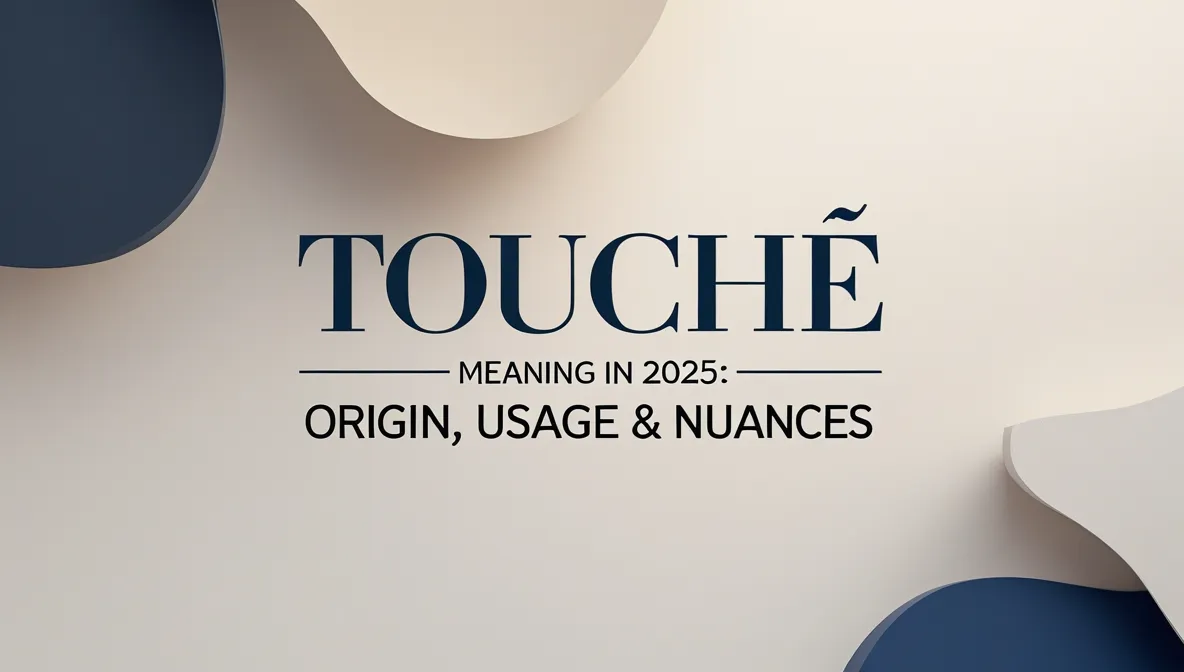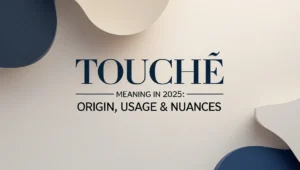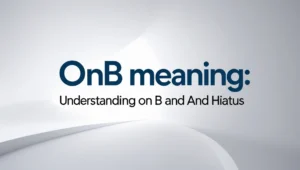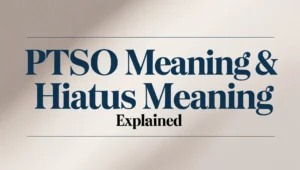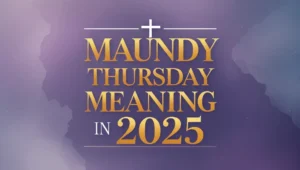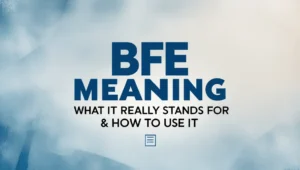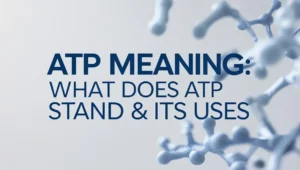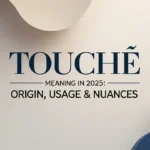In 2025, language continues to evolve with culture, technology, and the ways we connect. One word that’s not only survived the test of time but gained fresh relevance is “Touché.” Originally from the world of fencing, this French word has grown into a sharp, clever way to acknowledge a good point in conversations. Today, Touché’s meaning in 2025 has expanded beyond its roots, finding a place in everything from casual banter to intellectual debates and even viral social media moments. This article explores the origin of Touché, how it’s used today, and the deeper nuances that make it so impactful.
What Does “Touché” Mean in 2025?
At its simplest, Touché is used to admit that someone else has made a clever or valid point — especially in a back-and-forth exchange. It carries a tone of respect, sometimes mixed with humor or sarcasm, depending on the situation. In 2025, the core meaning of Touché hasn’t changed much, but how and where people use it certainly has.
You might hear it:
- In a friendly debate when someone gets the upper hand with a witty line.
- During a social media exchange, where a clever comeback deserves recognition.
- In casual conversations, often said with a smirk and a raised eyebrow.
It’s a word that says, “You got me there,” but with style.
The Origin of Touché
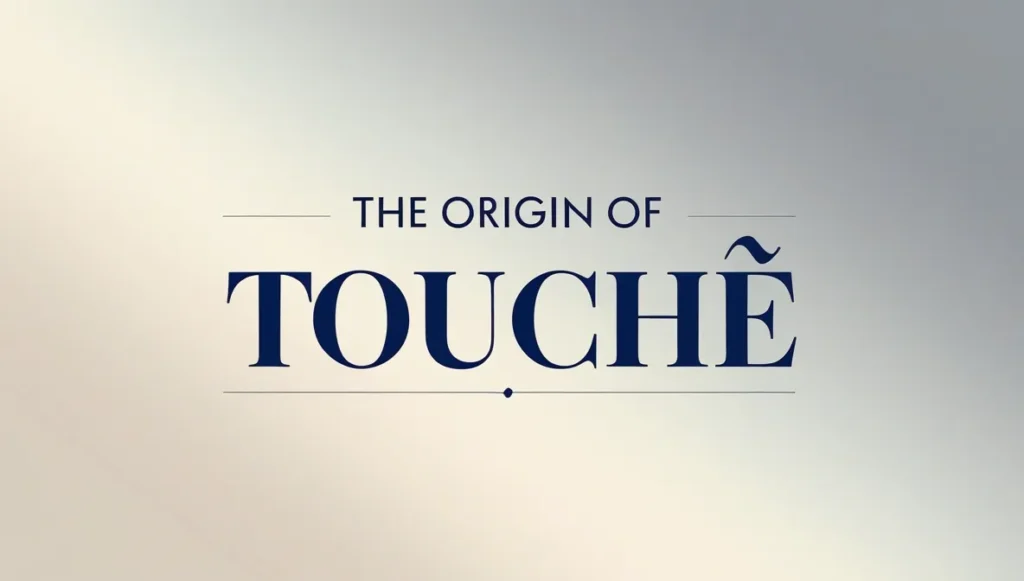
Touché comes from the French word toucher, meaning “to touch.” Its earliest use was in the sport of fencing. When a competitor landed a successful hit, the referee would say “Touché” to confirm the point.
From there, the term entered English-speaking circles, initially among the elite who appreciated fencing and French culture. Over time, it took on a more figurative meaning. People began using it in verbal “duels” to acknowledge a clever remark or a winning argument. It became a way to gracefully concede a point — and even to compliment an opponent’s intelligence.
Today, that refined elegance still lingers in its usage, even when it’s dropped in a TikTok comment thread or used in a late-night meme.
How People Use Touché in 2025
Language reflects culture, and in 2025, we see Touché being used in a wider variety of situations than ever before. It’s no longer reserved for literary characters or intellectual debates. It’s now an everyday word — and yet, still a special one.
Here’s how people are using it:
1. In Daily Conversations
Imagine two friends playfully arguing over who’s more punctual. One says, “You’re late so often, your calendar must be on vacation.” The other responds, “Well, at least I show up, unlike your gym attendance.” The reply? “Touché.”
This is classic use: clever, lighthearted, and good-natured.
2. In Online Interactions
Social media is a modern battlefield of opinions, humor, and hot takes. In this fast-paced environment, Touché has found a stronghold. You’ll often see it used as a comment under a viral post, as a reaction to a sharp reply, or even as the caption of a well-edited clapback video.
It’s short, stylish, and conveys a lot with just one word.
3. In the Workplace
Even in professional settings, Touché can pop up — usually in informal chats or during meetings where banter is welcomed. It’s a way to admit someone had a better idea or counterpoint without losing credibility. Think of it as a graceful concession that keeps things respectful and light.
Nuances of Touché: It’s All in the Tone
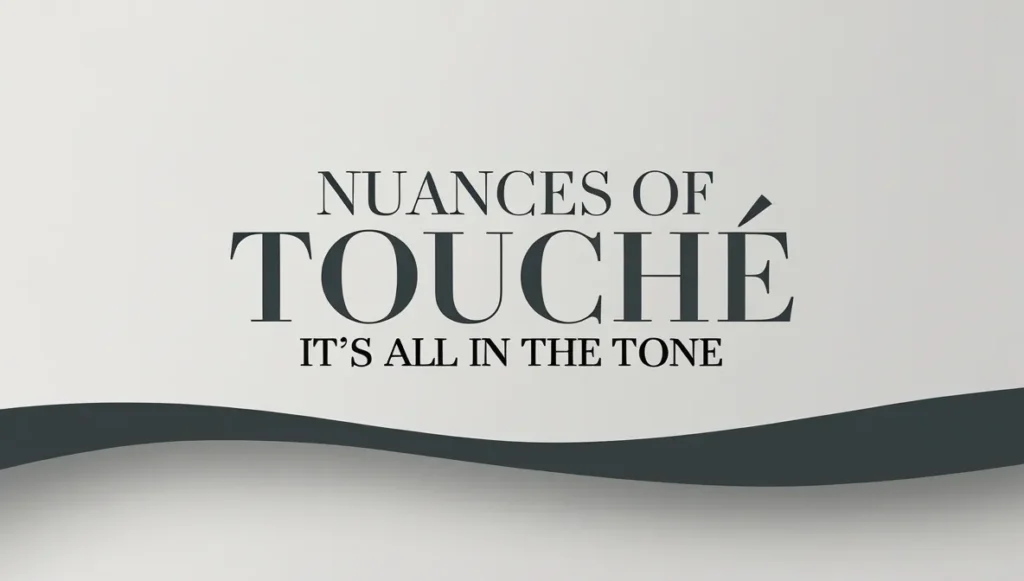
What makes Touché such a fascinating word in 2025 is how tone changes everything. The same word can be sincere, sarcastic, playful, or biting — depending on how it’s delivered.
When said sincerely, it’s a true acknowledgment of someone’s cleverness. When said with a smile or smirk, it’s playful and teasing. Used with a hint of sarcasm, it can even be used to mock or challenge.
For example, replying “Touché” after someone takes a jab at your fashion sense — and they’re not wrong — might be your way of owning the moment with style. On the flip side, saying it with exaggerated flair might subtly say, “Well played, but don’t get cocky.”
In this way, Touché is like verbal judo: the art of yielding to someone’s point while still standing your ground.
Touché in Pop Culture and Social Media in 2025
In 2025, pop culture is where language lives and breathes. The word Touché is frequently used in podcast debates, YouTube reactions, streaming shows, and especially on platforms like TikTok and X (formerly Twitter).
Whether it’s a comedian delivering a brilliant roast or a viral comment on a political post, “Touché” has become shorthand for “that was sharp” — a kind of digital tip-of-the-hat.
You’ll even find it as a punchline in TV shows and scripted series, signaling clever writing or an unexpected twist. It’s a word that fits perfectly in the age of memes, mic drops, and moments that make us say, “Oof, that hit.”
5 Unique FAQs About Touché in 2025
1. Is “Touché” still considered formal or outdated? Not at all. In 2025, it’s widely used across ages and settings. While it retains a refined vibe, it’s become trendy and casual in many circles.
2. Can Touché be used in texts and chats? Definitely. It’s perfect for texting — short, expressive, and full of personality. Whether serious or sarcastic, people instantly get what it means.
3. Does everyone pronounce it the same way? Yes, the standard pronunciation is too-shay. It comes straight from French, and the pronunciation has remained consistent.
4. Can I use Touché instead of saying “you’re right”? You can, but only if the tone fits. “Touché” adds flavor and implies that the other person’s point was particularly clever or ironic — not just correct.
5. Is it okay to use Touché when joking? Absolutely. It’s often used in jest. The beauty of “Touché” is that it lets you admit defeat with grace, humor, or even a playful wink.
Conclusion
Touché in 2025 is more than just a word — it’s a cultural moment, a conversation enhancer, and a witty way to acknowledge someone else’s brilliance. With roots in fencing and elegance, and branches stretching into the wild world of memes and digital discourse, Touché has maintained its charm while adapting to modern speech.It’s a perfect example of how a simple word can carry centuries of history, multiple layers of meaning, and still be cool enough to trend in a comment thread. So the next time someone hits you with a line that leaves you speechless — don’t argue. Just smile and say, “Touché.”

